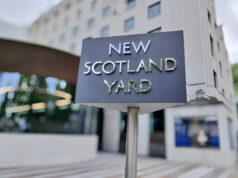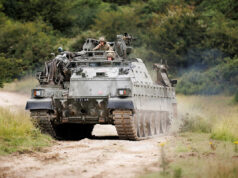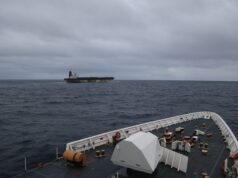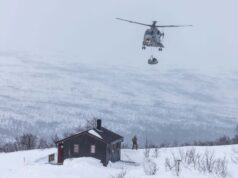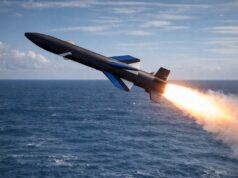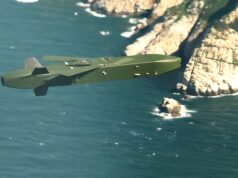The US Pacific Command has announced the deployment of additional fighter jets to South Korea.
This is the first deployment of additional military assets to the peninsula since the inauguration of President Trump who has consistently pledged a stronger approach to handling the north.
The 119th Fighter Squadron, Air National Guard, will deploy later this month to the US Air Force’s main point of presence in the south, trading their Atlantic City airbase for Osan just south of the capital Seoul, South Korea.
The deployment consists of twelve F-16 Fighting Falcons, supported by 200 Airmen and officers. They will join forces from the US’s 7th Air Force who operate their F-16’s alongside the A-10A Thunderbolt Close Air Support jets. Labelled a “theatre security package” by US PACOM, the squadron will help maintain the US’s regional deterrent and reassure allies of the ongoing American commitment to the region.
The announcement comes as newly appointed Defense Secretary James Mattis arrived in Seoul for one of his first overseas visits, a two-day to meet with his South Korean counterparts. In a public address on Friday he warned Pyongyang of an “effective and overwhelming” response to any use of nuclear weapons by the rouge states. While reassuring comments by secretaries of state and defence to their South Korean and Japanese counterparts are a routine matter of course on these visits, Mattis’ statement is more direct than many of his predecessors have offered, reflecting the new tone he and President Trump will be taking to defence matters.
Recent years have seen continued tension on the peninsula in the aftermath of the 2010 sinking of the Korean corvette ROKS Cheonan by a North Korean submarine. This was followed by the leadership change in North Korea, and the continued push forward with missile launch tests. These latest reassurances will therefore be warmly received in both Seoul and Tokyo.
While reassurances may bring good news around the Korean peninsula, the new administration is already facing challenges elsewhere in the region, with leaked reports of a difficult phone call between Trump and Australian Prime Minister Malcolm Turnbull over an immigration arrangement brokered late last year. With reaction to the Trump presidency in Australia largely negative, and the country moving closer and closer to Beijing, the US will need to work hard to maintain its critical defence ties within the region.


